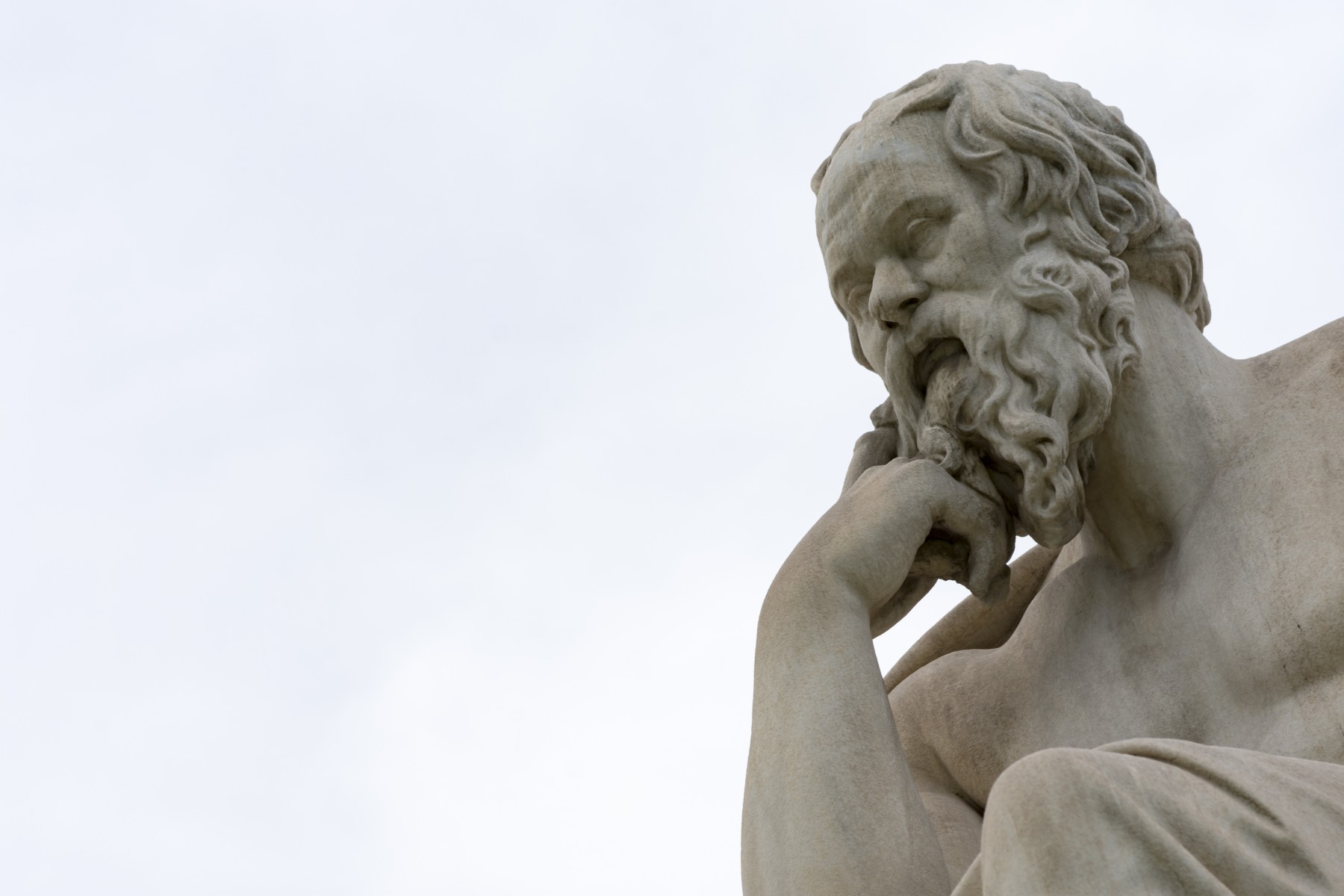History offers insight into today’s complex problems, researchers say
From Socrates to Hamilton, ‘old’ philosophies can shed light on new issues

|
Chris Bournea Ohio State News |
With the economy still rebounding from the pandemic and a polarized political climate generating heated debates about the state of democracy, many are wondering what the future holds. Two researchers from The Ohio State University say studying the past can open a window of understanding into current events.
Analyzing modern problems through the lens of history was the topic of the Arts and Humanities Inaugural Lecture: Elizabeth Hewitt and Greg Anderson, held virtually and in-person at the Faculty Club on Oct. 26 by the College of Arts and Sciences. Professors Hewitt and Anderson said their research into early American literature and ancient civilizations provides a historical context to view economics, politics and many other aspects of contemporary life.
 An English professor, Hewitt focuses her research and writing on pre-1900 American literature. Her latest book, “Explaining the Economy in the Early United States,” offers analyses of seminal economic texts of the 18th century, including Alexander Hamilton’s major economic policy reports.
An English professor, Hewitt focuses her research and writing on pre-1900 American literature. Her latest book, “Explaining the Economy in the Early United States,” offers analyses of seminal economic texts of the 18th century, including Alexander Hamilton’s major economic policy reports.
Hamilton is considered one of the nation’s “founding fathers,” having served as the first United States treasury secretary. Hamilton is also one of the co-authors, along with James Madison and John Jay, of The Federalist Papers, a collection of articles and essays published in 1787 and 1788 to promote the ratification of the United States Constitution.
The writings of Hamilton and other historical figures can shed light on current economic trends, Hewitt said.
“We know that Hamilton laid out the major structures of our contemporary economic thought,” she said. “I felt as if Hamilton’s mode of explanation was, in fact, much more capable of allowing me to understand the economic system that was emerging at that time.”
Hewitt said she began writing “Explaining the Economy in the Early United States” during the Great Recession of 2008, and studying Hamilton’s writings provided insight into the historic factors that led to the 21st century global financial collapse.
“Part of what brought me to Hamilton was thinking about the economic crisis and trying to make sense of how we got to that place,” she said. “For me, it was so illuminating.”
Hamilton has been in the spotlight in recent years, thanks to the phenomenal success of Lin-Manuel Miranda’s Tony Award-winning musical of the same name. The production debuted on Broadway in 2015 and continues to play the Great White Way and tour the world. The hip-hop take on Hamilton’s contributions to history is credited with sparking renewed interest in American history and the founding of the U.S. democracy.
The newfound popularity of Hamilton – the man – is curious, considering that when Hewitt began writing her book, she found scant previous research by colleagues in her field about Hamilton’s work.
“You don’t find Hamilton in any anthologies,” she said. “Usually you find federalism blogs – that’s the extent of Hamilton.”
 A history professor, Anderson specializes in ancient Greek societies, historical thought and critical theory. The Greek civilization of antiquity offers lessons on everything from how modern economies came into existence to how democracies function, he said.
A history professor, Anderson specializes in ancient Greek societies, historical thought and critical theory. The Greek civilization of antiquity offers lessons on everything from how modern economies came into existence to how democracies function, he said.
“When we engage in practices of democracy, of liberal economy, knowledge practices on these campuses, what we’re doing is enacting this (ancient Greek) world, we’re making it, we’re living it, realizing it,” he said. “It is materialized as the world as we know it.”
The caveat, Anderson added, is that ancient civilizations must be analyzed with historical accuracy rather than modern terminology.
“The evidence that you’re going to be looking at from the past will actually be talking about it in their terms rather than in ours,” he said. “You’re not going to find the equivalent of a term for ‘economy’ or ‘private’ or ‘public’ or ‘secular’ or ‘religion’ or ‘state’ or ‘society’ in Greek language – you’re not. People may think there are rough approximations, but they’re rough.”
Anderson’s most recent book, “The Realness of Things Past: Ancient Greece and Ontological History,” uses ancient Athens as a case study for how to draw lessons from history.
“We have to try to make sense of these past experiences on their own terms,” he said, “which ultimately means we have to end up thinking of them as being distinct worlds of experience that are somewhat different from our own.”
The Inaugural Lecture series celebrates Arts and Humanities faculty who have been promoted to the rank of full professor.


